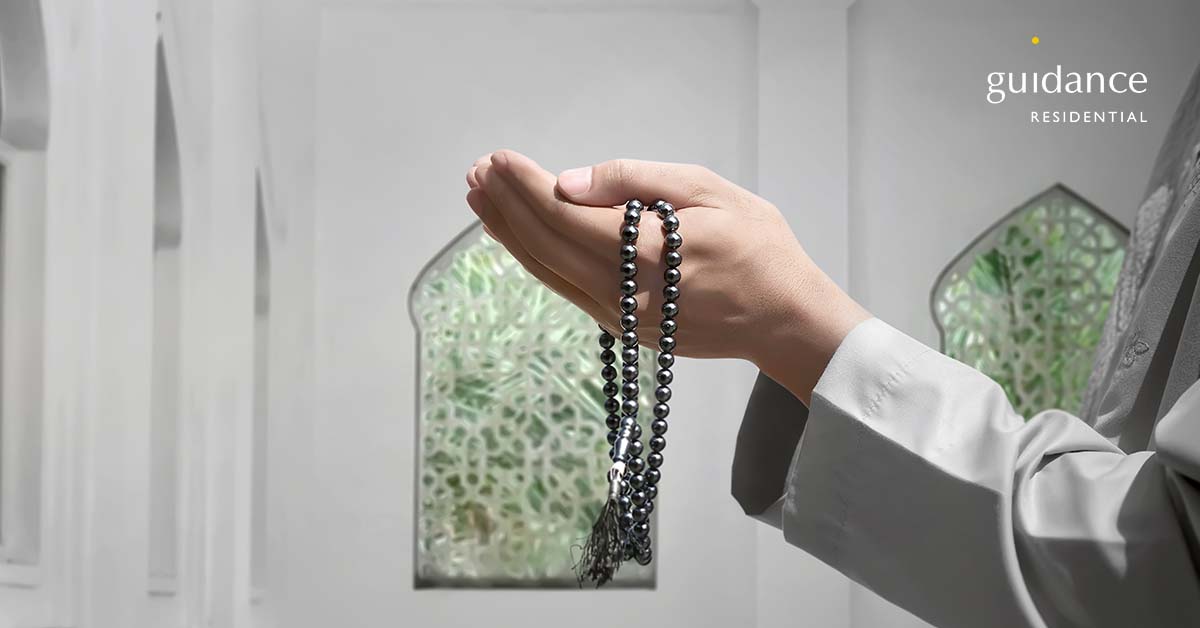The Three Islamic Home Finance Models – Musharaka, Murabaha, Ijara

The following video presented by Shaykh Yusuf Talal DeLorenzo addresses the difference between the three Islamic Home Finance Models (Musharaka, Murabaha, Ijara) and the importance of a Sharia board.
What Is Islamic Home Finance?
Islamic finance refers to a system of banking or financial management that is grounded in Islamic principles (Sharia law). Key aspects include the prohibition of interest (usury), known as riba, on loans, and investments in businesses that provide goods or services considered contrary to Islamic values, such as alcohol or gambling, are also forbidden.
This financial system emphasizes risk- and loss-sharing, fairness, and ethical conduct, aiming to create economic justice and ensure that transactions are transparent and equitable for all parties involved.
Islamic finance has gained significant attention in recent years, offering an alternative approach to conventional interest bearing loans. Rooted in Islamic principles and Sharia compliance, it aims to provide ethical and socially responsible financial solutions.
Understanding Sharia Compliance
Sharia compliance is the cornerstone of Islamic finance. It ensures that financial practices align with the principles outlined in Islamic law. A key aspect of Sharia compliance is the development of financial products and services that adhere to these principles, providing Muslims with viable alternatives to conventional banking.
Types of Islamic Finance
The three major types of Islamic home finance models used for home financing by Islamic banks and other financial institutions in the West are Murabaha, Ijarah, and Musharaka models.
Murabaha
Murabaha transactions involve a financier purchasing a home on behalf of a home buyer and then selling it to the home buyer at a marked-up price, which includes an agreed profit margin for the bank. The client can pay this amount in installments or a lump sum, as per the agreement.
A Murabaha contract, while acceptable, has the drawback of resembling debt. Because of this, murabaha financing is not considered a preferred model in the United States.
Ijarah
Ijarah is an Islamic financing structure where the bank buys a property on behalf of a customer and leases out the home to them for a fixed rent. The home buyer will then pay monthly payments that include a portion that goes toward purchasing the home. This concept is akin to a rental or leasing agreement, in which the lessee benefits from the asset, and the lessor earns a fixed income from the rent.
Ijarah is compliant with Sharia law, which prohibits charging interest and ensures that all financial transactions are backed by tangible assets and involve shared business risk. Like Murabaha, however, it has a major drawback in that the home buyer does not gain full ownership rights until the end of the sales contract term, typically 30 years. For that reason, it also is not a preferred model in the United States.
Musharakah
Musharakah is a form of co-ownership between the home buyer and the financing company. The finance and home buyer agree to invest in a property and purchase the home together as partners.
Each party owns shares in the home based on the percent of the purchase price they contributed. For example, if the home is priced at $100,000 and the customer pays a down payment of 10% (or $10,000) and Guidance Residential contributes 90% (or $90,000), the customer is 10% owner and Guidance is 90% owner.
In a version called Diminishing Musharakah, or the Declining Balance Method, the home buyer gradually buys out the financier’s stake in the property, while paying a fee to use the part of the property still owned by the financier.
Musharakah: The Preferred Method
Musharakah is the most common form of Islamic home financing in America.
In this type of model, the home buyer gains all of the advantages of a traditional mortgage loan, maintaining full ownership rights from the beginning. They also receive additional benefits such as enhanced consumer protection, as both parties share in the profit and loss of an investment or business venture.
A Musharakah contract is rooted in the principles of risk and reward sharing and is widely regarded as a fair and equitable form of finance.
For these reasons, Guidance Residential favors the use of the Musharaka model in our business operations.
Developing an Authentic Model
Guidance Residential was founded in 1999 to fill the need for riba-free and shariah compliant Islamic home financing in the United States. For many years, American Muslims trying to observe the prohibition on riba found no way to buy a home in accordance with their values. Guidance Residential’s team began a three-year research and development project involving 18 law firms and six of the world’s leading Islamic finance scholars to develop an authentic home financing model compliant with both U.S. and Islamic legal systems.
After developing its Musharakah Mutanaqisah, or Diminishing Partnership, model of Islamic home financing, Guidance Residential began offering this service to home buyers in 2002.
Since then, over more than 20 years, the company has grown their portfolio substantially, becoming the leading provider of Islamic home financing in the United States. The company has provided more than $10 billion in financing, helping more than 40,000 families on their home ownership journey. This service is open to Muslims as well as non-Muslims and it continues to grow in popularity.
Benefits of Guidance Residential’s Co-Ownership Model
In addition to providing a riba-free and shariah compliant alternative to conventional loans, Guidance Residential’s model of Islamic home financing offers additional advantages not found in an interest bearing loan.
Risk Sharing
One of the major benefits of the Islamic co-ownership home financing model is the way it approaches risk sharing. Unlike conventional loans where the borrower bears nearly all of the risk, the co-ownership arrangement means that both the financial institution and the homeowner share the burden of any potential loss in property value. In the case of certain natural disasters, however, if insurance did not cover the entire cost, the remaining loss would be shared by Guidance Residential and the homeowner in proportion to the share of the property each party owns.
Asset Protection
In the case of foreclosure, if the property cannot be sold to recoup the full loan amount, banks often pursue the homeowner’s other assets to recoup their losses. Under Shariah principles, Guidance Residential cannot retrieve more than the specific commodity involved — in this case, the home. Its contracts include a unique “non-recourse” clause that protects all of the customer’s assets other than the property from being subject to foreclosure.
Capped Payments
Furthermore, in accordance with Islamic principles, Guidance Residential incorporates a compassionate approach to late payments, featuring capped late payment charges. Only a small flat fee may be charged to cover the costs involved in reaching out to the homeowner for the missing payment. This serves to protect homeowners from excessive penalties and reflects the ethical finance principles upheld in Shariah law.
No Pre-Payment Penalty
In addition to capped late payments, Guidance Residential does not charge any prepayment penalty as some banks have traditionally done. If a homeowner wishes to pay off their contract early, they are free to do so.
Ongoing Protection
Once the model was developed, however, the work was not over. Customers need the assurance that this riba-free service remains authentic and shariah compliant. This assurance is provided by an independent shariah board.
The Role of an Independent Sharia Board
To ensure true compliance with Islamic principles, an independent Sharia board plays a vital role.
This board consists of scholars well-versed in Islamic law and finance, who provide guidance and oversight. Their expertise helps evaluate financial products and services, ensuring they align with Sharia principles and meet the needs of the Muslim community.
The board audits the company’s procedures and services every year to ensure continued compliance with Islamic principles. They also remain available to answer questions and provide guidance on an ongoing basis.
The presence of an independent Sharia board instills confidence and trust in Islamic financial institutions.
The Significance of Islamic Finance
In a world where ethical finance is gaining prominence, Islamic finance stands out as a viable alternative. The Murabaha, Ijarah, and Musharaka models represent different approaches to achieving Sharia compliance in financial transactions. By upholding the principles of Islamic law and incorporating an independent Sharia board, Islamic financial institutions can provide ethical and sustainable solutions. As Islamic finance continues to evolve, it holds the potential to shape a more inclusive and socially responsible financial landscape.
Islamic finance offers a unique approach to financial matters, integrating ethical considerations and social responsibility. It provides an opportunity for individuals to engage in financial activities while adhering to their religious beliefs. By emphasizing fairness, transparency, and responsible investment, Islamic finance strives to create a more equitable and inclusive financial system.
Originally published in July 2020, updated in February 2024.




